The Composer's Dilemma:7 Tips for Smashing Writer's Block in Music.

Writer's block, that seemingly impenetrable creative barrier, is a struggle that every musician experiences at some point in their career. It can be overwhelming to be unable to transform your musical ideas into a piece. There are, nevertheless, effective methods for overcoming writer's block in music creation. In this post, we'll look at seven helpful hints for breaking through limitations and unleashing your creative potential.
Experiment with New Instruments or Sounds
Exploring new instruments, whether physical or virtual, and experimenting with various sound libraries can inspire musical composition innovation. The act of experimenting with a new instrument or entering into uncharted digital territory may stimulate fresh thoughts. The unfamiliarity of these characteristics may disturb typical cognitive patterns, motivating musicians to venture beyond of their comfort zones. When artists explore unexplored sonic territories, they frequently create pieces that are unexpected and imaginative. New instruments may introduce new timbres and textures, while virtual tools provide an infinite number of sonic modification options. Finally, having the confidence to try out new musical parts can give works new life and push the boundaries of musical expression.
Limit Your Options
Surprisingly, artistic breakthroughs frequently emerge when artists intentionally impose limits on their work. Setting restrictions, such as employing a specific set of instruments or adhering to a specific musical scale, forces creators to become more focused and imaginative. Constraints force musicians to think more creatively within those constraints, enabling them to try out new ideas and strategies. As a result, students frequently develop novel methods to manipulate their chosen instruments or scales, resulting in distinctive musical interpretations. These self-imposed constraints can be used to guide creativity and build a greater grasp of the artistic potential within seemingly limited confines.
Change Your Environment:

Changing your surroundings is an effective method for overcoming writer's block in music creation. It brings new viewpoints and originality, promoting creativity and sparking new ideas. Changing your environment, whether by reconnecting with nature, experiencing metropolitan landscapes, seeking solitude, or going to new places, might help overcome creative stagnation. Accepting the unpredictability of a new setting can have a significant impact on compositions. In conclusion, environmental shifts provide unexpected inspiration and are a powerful technique for overcoming writer's block in music.
Collaborate
Collaborating with other musicians or songwriters is a breath of fresh air in the often lonely world of music creation. It acts as an antidote to the boredom that might inhibit creativity when working alone. You have access to other people's unique experiences, musical influences, and creative sensibilities when you join forces with them. This diversity of viewpoints creates a synergy that might result in the production of new and inventive concepts, revitalizing your creative process. Sharing and bouncing ideas off one another generates a dynamic feedback loop that improves the quality and depth of your music.
Listen to Different Styles of Music:
Diversifying your musical palette by experimenting with genres and styles you don't often listen to can be a great creative motivator. Exposure to many musical worlds broadens your grasp of rhythm, melody, harmony, and instrumentation, providing you with a broader aural vocabulary to pull from in your creations. Cross-pollination of ideas from these various genres allows you to combine elements in unexpected and unique ways, resulting in works that stand out. By embracing the distinct characteristics of many genres, you may inject your music with new influences and viewpoints, resulting in a more dynamic and engaging body of work. Listening to diverse types of music, in essence, serves as a source of inspiration, widening your creative perspective and stimulating musical research.
Take Breaks

Taking breaks and engaging in self-care are critical methods for overcoming writer's block. Prolonged creative sessions can cause mental exhaustion, making it difficult to produce new ideas. Adequate rest, hydration, and breaks refresh your mind and keep your cognitive capabilities at their prime. Prioritizing your physical and mental well-being not only recharges you but also fosters a healthy and long-term creative process. Finally, a well-balanced approach to self-care guarantees that your creativity flows freely, free of the constraints of mental tiredness.
Revisit Old Ideas
Returning to previous ideas can be a gold mine for breaking through creative obstacles. Consider revisiting incomplete compositions or concepts that may have previously appeared impractical. This technique frequently uncovers untapped potential and can result in creative breakthroughs. It's fairly uncommon to discover that a reinterpreted or altered old idea fits effortlessly into a new project, bringing depth and coherence to your body of work. In essence, revisiting and revising previous ideas demonstrates the ever-evolving nature of the creative process and the possibility for novel outcomes when old and new ideas collide.
**Bonus Tip**: Record and Save Ideas

Any moment can be an inspiration. Keep a recording device or a notebook close at hand so that you are ready to record it. Record or write down any melodies, lyrics, or ideas that come to you right away. These excerpts can act as important skeletons for your compositions.
Final words
Keep in mind that writers block is a typical problem for creative people, and it's acceptable to encounter it occasionally. Be kind to yourself, persevere, and keep trying out various strategies until you discover the one that works best for you. Finding inspiration is simply one aspect of overcoming writer's block; you also need to build resilience and have a better grasp of your creative process.


